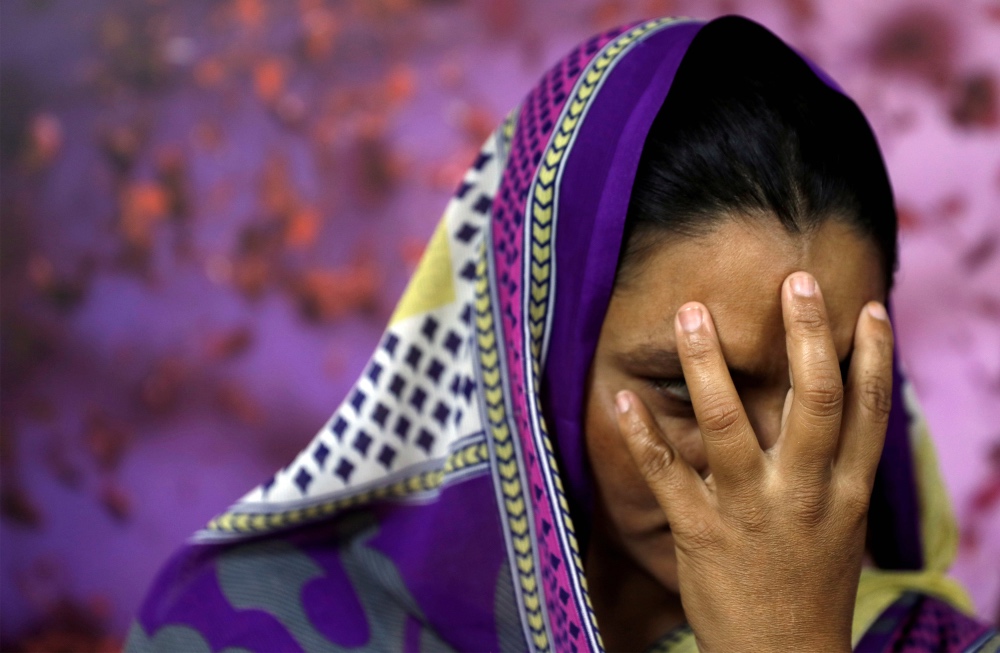Chennai, India
Thomson Reuters Foundation
Indian trafficking survivors are using crowdfunding to help cover their legal costs, pay for public awareness campaigns and enable them to become more self-reliant.
In a rare move, the India Leaders Forum Against Trafficking, an umbrella organisation of 11 survivor groups from across the country, raised more than 500,000 Indian rupees ($US6,960) this month through online crowdfunding sites.

A survivor of slavery who wished to remain anonymous poses for a picture in New Delhi, India, on 7th March, 2018. PICTURRE: Reuters/Cathal McNaughton/file photo
“We are always short on funds,” said Haseena, a survivor from southern Indian state of Andhra Pradesh and senior official at the forum. “We didn’t expect to get what we wanted but we are very happy we did.”
“We are always dependent on others for funding and wanted to change that and become self-reliant,” she said, adding that the aim is to double the amount raised in their next crowdfunding effort – due to launched in the coming months.
India is home to the largest number of slaves globally, with eight million out of a global total of 40 million, according to the Global Slavery Index by Australia-based Walk Free Foundation.
The latest government data showed a drop in the number of new slavery cases reported over the last two years, although survivor groups say challenges remain in the rehabilitation of victims of forced labour and sex trafficking.
Survivors often struggle to find their feet after being rescued, with less than one per cent receiving victim compensation promised by the state.
They also find it difficult to pursue their legal cases, which involve hiring lawyers and numerous trips to courts during proceedings that can go on for years, anti-trafficking campaigners said.
“This is a rare occasion when survivors spoke up for themselves, campaigned and raised money,” said Ram Mohan, secretary of Indian anti-trafficking charity HELP.
“It was an experiment that has paid off and will be replicated. It will also give the leaders of this forum financial support to continue their advocacy and legal battles.”
Indians have traditionally made charitable donations and crowdfunding is seen as an extension of that, researchers say.
“Crowdfunding for medical treatment, the arts and start-ups has been popular,” said Hetal Jhaveri, professor of finance at Ahmedabad University, who has researched such platforms.
“The fact that so many have come forward to support human trafficking survivors shows that there is a certain level of awareness on the issue and people want to help stop the crime,” she said on Tuesday.
Funds raised through the initial crowdfunding campaign will also be used by the forum to pay lawyers, file appeals in higher courts, and access victim compensation.
For slavery survivor Haseena, the successful crowdfunding experience has been a real eye-opener.
“We were sceptical in the beginning,” she told the Thomson Reuters Foundation. “But now we feel that people care about us and we are optimistic that the awareness will increase and our problems will reduce.”






